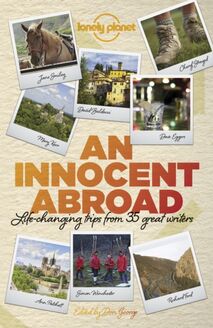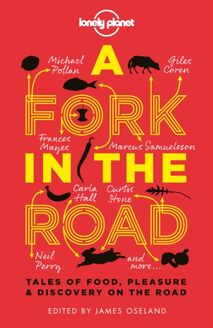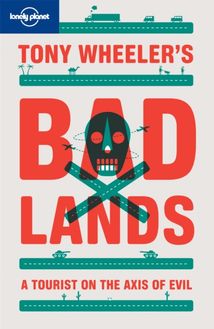-
 Univers
Univers
-
 Ebooks
Ebooks
-
 Livres audio
Livres audio
-
 Presse
Presse
-
 Podcasts
Podcasts
-
 BD
BD
-
 Documents
Documents
-
- Cours
- Révisions
- Ressources pédagogiques
- Sciences de l’éducation
- Manuels scolaires
- Langues
- Travaux de classe
- Annales de BEP
- Etudes supérieures
- Maternelle et primaire
- Fiches de lecture
- Orientation scolaire
- Méthodologie
- Corrigés de devoir
- Annales d’examens et concours
- Annales du bac
- Annales du brevet
- Rapports de stage
La lecture à portée de main
Vous pourrez modifier la taille du texte de cet ouvrage
Découvre YouScribe en t'inscrivant gratuitement
Je m'inscrisDécouvre YouScribe en t'inscrivant gratuitement
Je m'inscrisEn savoir plus
Vous pourrez modifier la taille du texte de cet ouvrage
En savoir plus

Description
Sujets
Informations
| Publié par | Lonely Planet |
| Date de parution | 01 juillet 2011 |
| Nombre de lectures | 0 |
| EAN13 | 9781742204796 |
| Langue | English |
| Poids de l'ouvrage | 1 Mo |
Informations légales : prix de location à la page 0,0400€. Cette information est donnée uniquement à titre indicatif conformément à la législation en vigueur.
Extrait
CONTENTS
Chapter 1
Chapter 2
Chapter 3
Chapter 4
Chapter 5
Chapter 6
Chapter 7
Chapter 8
Chapter 9
Chapter 10
Chapter 11
Chapter 12
Chapter 13
Chapter 14
Chapter 15
Chapter 16
Chapter 17
Chapter 18
Chapter 19
Chapter 20
Chapter 21
Chapter 22
Chapter 23
Chapter 24
Chapter 25
Chapter 26
Epilogue
Acknowledgements
Return to beginning of chapter
For David Monagan, born in Connecticut to a staunch Irish-American family, a lifelong interest in Ireland was perhaps inescapable. David studied literature at Dublin’s Trinity College in 1973 and ’74, and he became captivated by the country. After enjoying many visits in the intervening years, in 2000 David and his family relocated from the U.S. to Cork, Republic of Ireland. David has written for numerous publications, including the Irish Times , Sunday Independent , and Irish Examiner , and in his wide travels has developed a keen eye for things baffling and marvelous, such as he finds everywhere around him in modern-day Ireland.
Return to beginning of chapter
JAYWALKING WITH THE IRISH
DAVID MONAGAN
LONELY PLANET PUBLICATIONS
Melbourne • Oakland • London • Paris
Jaywalking with the Irish
Published by Lonely Planet Publications
Head Office: 90 Maribyrnong Street, Footscray, Vic 3011, Australia Locked Bag 1, Footscray, Vic 3011, Australia
Branches: 150 Linden Street, Oakland CA 94607, USA 72–82 Rosebery Ave, Clerkenwell, London EC1R 4RW, UK
Published 2004, reprinted 2005 Printed through The Bookmaker International Ltd Printed in China
Edited by Meaghan Amor Designed by Nic Lehman
National Library of Australia Cataloguing-in-Publication entry
Jaywalking with the Irish
ISBN 978 1 74220 479 6
1. Ireland – Description and travel. 2. Ireland – Guidebooks. 3. Ireland – Social life and customs. I. Title. II. Title : Jay walking with the Irish
914.15
Text © David Monagan 2004 Maps © Lonely Planet Publications 2004
LONELY PLANET and the Lonely Planet logo are trade marks of Lonely Planet Publications Pty. Ltd.
All rights reserved. No part of this publication may be reproduced, stored in a retrieval system or transmitted in any form by any means, electronic, mechanical, photocopying, recording or otherwise, except brief extracts for the purpose of review, without the written permission of the publisher.
Return to beginning of chapter
For Jamie and three eager young wayfarers on distant shores
Return to beginning of chapter
Return to beginning of chapter
Chapter 1
For Ireland, the morning sky was a strange canvas of blue peace, the day before the most fateful September 11 in history, and the world felt at once fresh and familiar as I entered the Turkish barber on Cork’s MacCurtain Street.
A swarthy fellow with a long black ponytail and hefty gold neck-chains motioned me into the chair. He tucked a bib under my chin and began clacking his scissors.
“What’s your name?” I asked companionably, looking out at the pedestrians ambling on the street named after a lord mayor who was shot dead by British irregulars eighty years earlier.
“Ahmad, I am called. And you, you are not from here?”
“No. The States.”
“America?” he asked, clipping and chopping with a vengeance.
“Yes. And yourself?”
“I am from Iraq.” Pause. Snip. His scissors suddenly flew into overdrive. “We are at war.”
Gulp. Being trapped in a foreign barber’s chair before a hulking figure who deems you his blood enemy is not reassuring, especially when the man in charge has a variety of razors at his fingertips and is commencing blade work close to the jugular. Psychologists refer to the “Stockholm syndrome” when captives develop an inordinate desire to befriend those in control of their fate. I embraced it.
“But we are not at war. It is our governments that are butting heads, and the Iraqi people don’t exactly love Saddam Hussein either, do they?” I tried, scarcely imagining what engines of destruction were wheeling forward at that moment.
“Saddam a great man,” Ahmad insisted, curling a length of string into a curious noose-like configuration.
I considered bolting out the door then and there with the bib hanging pathetically from my neck. But then, any rash movement could have proved terminal. So I instead meekly asked, “Have you been here long?”
“Two years,” he said, his fingers ominously tightening the looped string. I nodded, having just commenced a second one in the Irish bedevilment boot camp myself. Weren’t we merely fellow sojourners in the end?
“Is your family still in Iraq?”
“Yes, my father a pilot,” Ahmad fairly spat as he leaned over my straightjacketed self. Without warning, he cinched his miniature noose around a stray facial hair and yanked the ends with all his considerable might, sending the errant follicle flying in the general direction of Baghdad. It hurt.
“Oh, he flies an airliner?” I struggled for composure.
Whoosh went another hair.
“No, a fighter jet. He is captain in Iraqi air force.”
This was getting bad. Friends of my deceased fighter-pilot brother had probably lined Ahmad’s dad up in their sights more than once. Dim recollections of UN sanctions and jump-jet-enforced no-fly zones burst into my head. Better not mention the brother, I decided, as the Barber of Baghdad dipped a Q-Tip into a jar of oil. This he set on fire.
“Do you like Ireland?” I tried, then watched openmouthed as he drove the tiny torch into my ears, ostensibly to burn off more errant hair there, or maybe just to keep me in line for an official Baath Party stiletto knife tucked in his apron.
Ahmad, eyes going adamantine, had the look of a man gleefully at one with his work. “It is far better than America.”
At that point, I shut up. Happy to get out unmaimed, I in fact tipped Ahmad generously and limped off, nursing a head full of questions. Outside, the incongruous contrasts of Irish life lay rampant – purveyors of tin whistles, curry and “free poppadum,” New Age potions, Baptist bible services, adult entertainment, country house heirlooms, and black stout stood side by side, while a pig farmer I’d once met began his day’s lurch toward a dark den favored by local musicians and poets. Here lay the curious sweep of the Republic’s second-largest city or, more accurately, the biggest village in Ireland, about to be celebrated as the European Capital of Culture for 2005. But could it ever be home? The security implied by that humble term was poised to go up in flames. And, at least temporarily, countless American transplants on foreign shores were destined to lose their deepest bearings, whether in plumbing the Irish end of the rainbow, or any other Shangri-la the globe offers.
But at that naive moment, all I knew was that the simple act of getting a haircut had grown at once sinister and comic. Ahmad had seemed a pro. Knowing Cork as I do now, I’d consider betting a tenner he was simply winding me up. But the story must begin at the start, with a fascination with Ireland that reached back through decades.
“I’m not going!” our six-year-old son, Owen, shouted when, eighteen months earlier, we had announced our plans to drop everything and move to Ireland. Then he crawled under a coffee-table, squeezed sheets of newspaper into balls, and furiously flung them out in all directions. His parents, the people he trusted more than all others, were destroying everything he treasured, so he now barricaded his small fortress with cushions from the couch.
Why a comfortable family should suddenly pack off across the seas to a rain-lashed chimera in the Atlantic is a question that confounds us still, as does the very essence of this brooding island that inspires, baffles, and wounds with equal sport. For nearly thirty years, wanderings to Hibernia had been a peculiar constant in my life, with the wife led by the hand through more than half of them. The place’s siren call captured her spirit as well.
We had hit that time in life when an inventory of achievements, possessions, and responsibilities revealed that certain intangibles had gone missing, ingredients like adventure and renewal. So, crooked roads being the paths of genius, we would take the family off for the biggest expedition in our lives, a safari to Ireland.
“You’ll love Cork City,” Jamie promised, which was a stretch, because she’d been there for only a couple of hours once. But the compact bustle of the place had grabbed us at first sight, just as the wild beauty of West Cork had done, when we had recently visited at length; Dublin, on the other hand, felt like exactly the kind of frantic sprawl we had spent years avoiding. “You won’t have to be alone so much because we’ll be surrounded by other houses with all kinds of new kids to play with right outside our door.”
At this point, two pillows parted and Owen’s blue eyes glowered suspiciously from the floor. The next thing I knew, a fresh wad of newspaper went flying over my head. Then the wall of cushions closed again.
Jamie, on her knees now, kept searching for words of solace. “It will only be a year,” she whispered. “I promise we’ll make it fun. You know how much you love trains? They’ve got them all over the place there. And lakes and waterfalls and . . .”
Myself, I started passing photographs into the sarcophagus, showing Owen grinning on glorious Irish beaches, on boats and mountaintops, all of these from a vacation a year and a half before. Then Jamie slipped a plate of cookies through a gradually widening gap in the pillows. Suddenly, a shriek of hysterical laughter erupted from within, Owen’s nature being far too sunny to carry the protest on any longer.
The ten- and eleven-year-olds, Harris and Laura, looked at us as if we’d flipped our lids. And perhaps we had.
When my father was my age he’d gone off and, without telling any
-
 Univers
Univers
-
 Ebooks
Ebooks
-
 Livres audio
Livres audio
-
 Presse
Presse
-
 Podcasts
Podcasts
-
 BD
BD
-
 Documents
Documents
-
Jeunesse
-
Littérature
-
Ressources professionnelles
-
Santé et bien-être
-
Savoirs
-
Education
-
Loisirs et hobbies
-
Art, musique et cinéma
-
Actualité et débat de société
-
Jeunesse
-
Littérature
-
Ressources professionnelles
-
Santé et bien-être
-
Savoirs
-
Education
-
Loisirs et hobbies
-
Art, musique et cinéma
-
Actualité et débat de société
-
Actualités
-
Lifestyle
-
Presse jeunesse
-
Presse professionnelle
-
Pratique
-
Presse sportive
-
Presse internationale
-
Culture & Médias
-
Action et Aventures
-
Science-fiction et Fantasy
-
Société
-
Jeunesse
-
Littérature
-
Ressources professionnelles
-
Santé et bien-être
-
Savoirs
-
Education
-
Loisirs et hobbies
-
Art, musique et cinéma
-
Actualité et débat de société
- Cours
- Révisions
- Ressources pédagogiques
- Sciences de l’éducation
- Manuels scolaires
- Langues
- Travaux de classe
- Annales de BEP
- Etudes supérieures
- Maternelle et primaire
- Fiches de lecture
- Orientation scolaire
- Méthodologie
- Corrigés de devoir
- Annales d’examens et concours
- Annales du bac
- Annales du brevet
- Rapports de stage


















